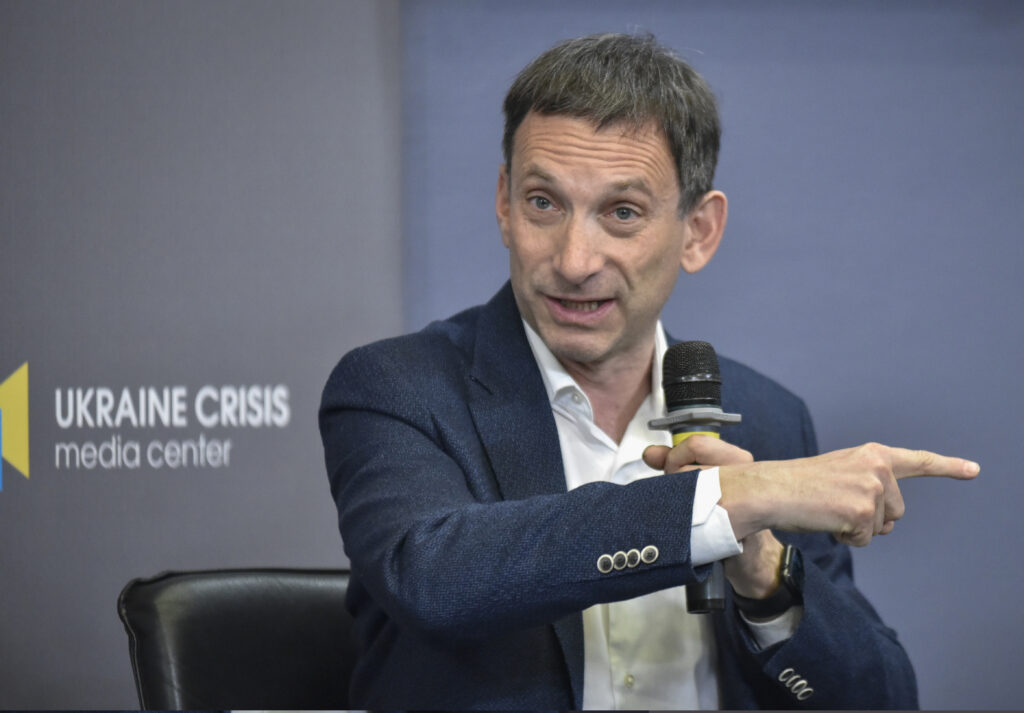
Vitaly Portinkov – Translation
Unraveling Russia’s Geopolitical Objectives: Revisiting the Yalta Agreement and Its Implications
First, the Russian Federation wants to return to the Yalta agreement – signed on May 9, 1945.
The security guarantee proposal Russia put forwards before the war stated that – the former Soviet republics must never become NATO nations, that is, they will be responsible for themselves, and those countries who became members since the Yalta agreement must not place any NATO weapons on their territory, in other words, know their place. This would primarily serve as a demilitarized buffer zone between ‘the Russian union’ and the Western world.
Finland was a neutral state at the time this agreement was proposed, but they may now be included in this zone of no arms placement.
I wouldn’t be surprised if Russia would want to move it back to the 1917s borders one day, but for now, they want borders at the 45-year mark. Understanding this is necessary in order to understand that Ukraine is only a small fragment of the plan, albeit not the last.
Ukraine’s Struggle for Values: Embracing European Union and NATO as Cornerstones of Sovereignty
Ukraine wants to be a sovereign state with the right to choose, with internationally recognised borders in 1991/ Ukraine has realized that it is a battle for values, the European Union and NATO are becoming a value system for Ukraine. Ukrainians recognise that this is a fight for values under international law.
Upholding International Law: The West’s Call for Respect and Stability in Territorial Disputes
A return to international law, and the1945 rules that prohibit one country from claiming another’s territory as its own to be adhered to.
Prior to the annexation, the West had largely ignored the unresolved conflict in the post-Soviet space. We lived in a world of Transnistria, Abazia, South Ossetia, and Carabach for decades, and no one was in a hurry to resolve these conflicts, no one imposed sanctions. No one called for Russia to be kicked out of the G7 after invading other countries.
But eventually the annexation of Crimea was the penny drop for western politicians – if countries continue to violate international law, the situation will spiral out of control, ending in WW3.
As a result, the west wants Russia, and other countries like Russia, to not invade and claim territories of sovereign countries as theirs. Pressure on a foreign nation however, is regarded as acceptable; political influence is also accepted; but a violation of international law is not.
China’s geopolitical ambitions?
They want to establish a two-polar world in which the United States and China can make all international law decisions. China wants to show that no conflict in the world can be resolved without their participation and input. China wishes to impose its will on other countries.
And to resolve this problem is quite the task because we know that this conflict is bigger than the Russian-Ukrainian war – the Ukrainian war is only a small part of the plan. It is simply the starting gun, just as Sarajevo, Bosnia and Herzegovina was for these principles.
Ukraine and Serbia will not determine how the future will look. However, the future will be defined by how well we manage to adhere to the value principle. And Ukraine is just one of these arenas of values that must be defended on a different platform, whether it wins or loses.
Ukraine is now more of a vocal point than Serbia was because people remember how major wars end. It was after Serbia that people realized how war means millions of people suffer, and how decades of tragedies and economic problems follow.
Ukraine is the site of a war set against a backdrop of events that will be remembered as completely fragmentary and episodic because the number of losses suffered by Ukraine and that it may suffer in the future is incomparable to the scale of new conflicts in the EU and the Eurasian subcontinent.
Unresolved Conflicts: The Persistence of Major Wars and the Lack of Demanded Peace Negotiations
Nobody tells Israel that it must immediately grant Palestine the right to form a state or else it will be kicked out of the UN. Or we will not provide you with humanitarian aid unless you recognise Israel’s right. Instead, they claim that they will come to an agreement among themselves.
Reevaluating Historical Examples: Challenging Diplomatic Excuses for Ukraine’s Negotiations
It is a major mistake of diplomats that base their conclusions on how to resolve conflict through past wars. Each new conflict generates new problems that are difficult to resolve. Today, we’re sitting here trying to come up with a solution. If we sat here trying to make a decision based on previous wars’ experience, we’d reach a dead end.
Stalin’s final blunder: a Lesson to Remember?
Stalin believed in power rather than the UN, and the Korean War ended largely as a result of his death. If he had lived, things would have been very different. The Korean War was a tool for Stalin in his fight against the West. Those then in power after his death, had a different perspective on world politics, and so a decision on Korea was made when he was no longer in the picture. Stalin was willing to sacrifice any number of people to achieve his goals, he was ready to launch WW3.
This is where Henry Kissinger and Winston Churchill differ. Churchill believed that if Stalin was not stopped, he would go all the way, whereas Kissinger believed that Stalin could be bargained with.
But when a country is led by someone who has no regard for political diplomacy, the country is doomed.

